MENTOR MENTOR
BUILDING YOUR MENTORING SKILLS TO SUPPORT LEADERS IN FOOTBALL.


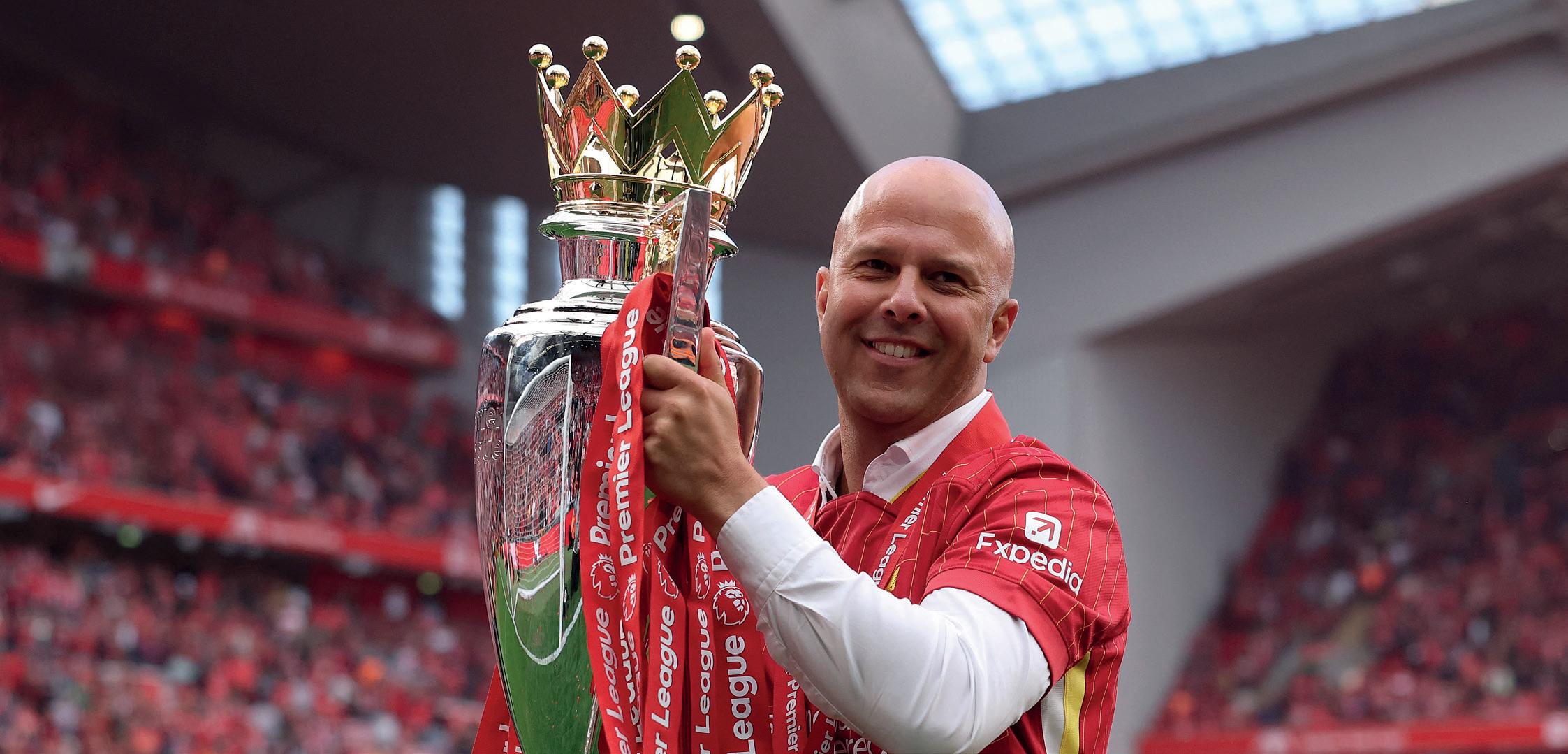



BUILDING YOUR MENTORING SKILLS TO SUPPORT LEADERS IN FOOTBALL.





LMA Mentor is a 12-week, 8-module short course, designed to develop the key skills, knowledge and professional practice that underpin effective mentoring.
The focus of the programme is to equip you with the skills to build strong personal relationships with others, generating trust, honesty, reflection and learning.
Through supportive and challenging conversations, you can help managers and coaches to fulfil their potential.

DON’T DO IT ON YOUR OWN.
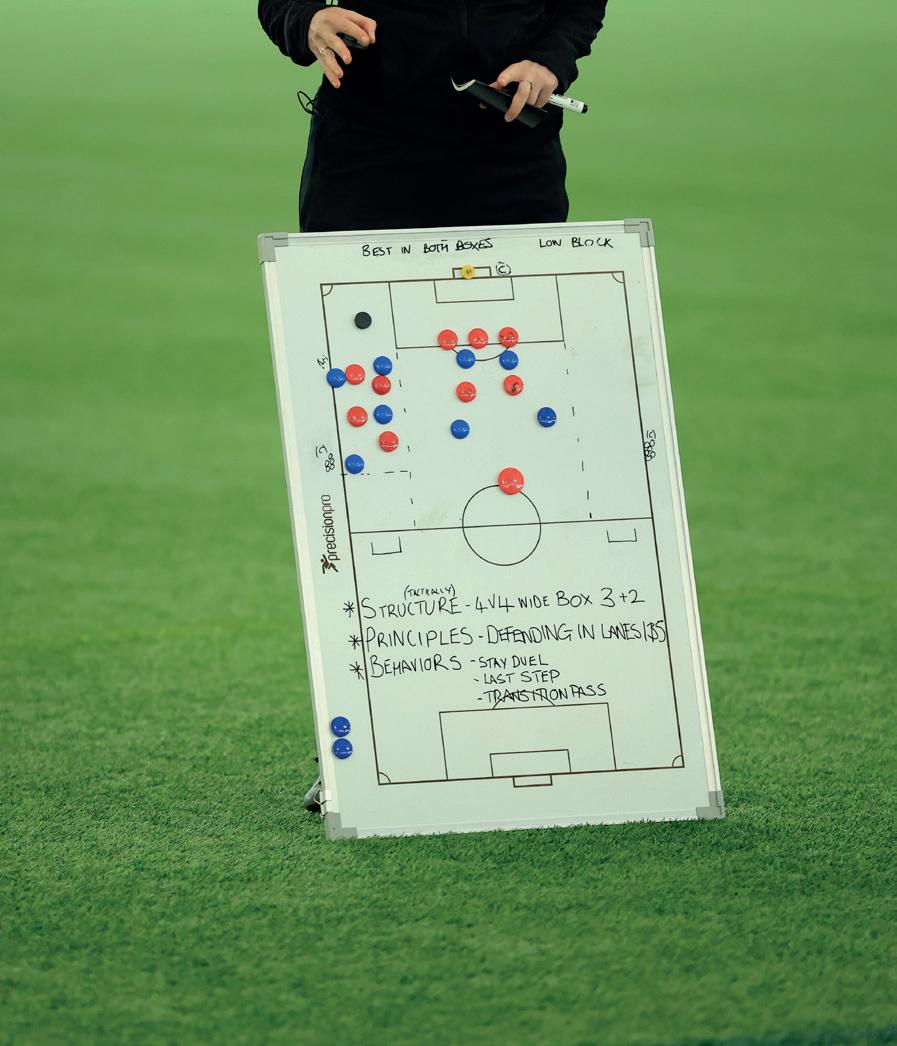

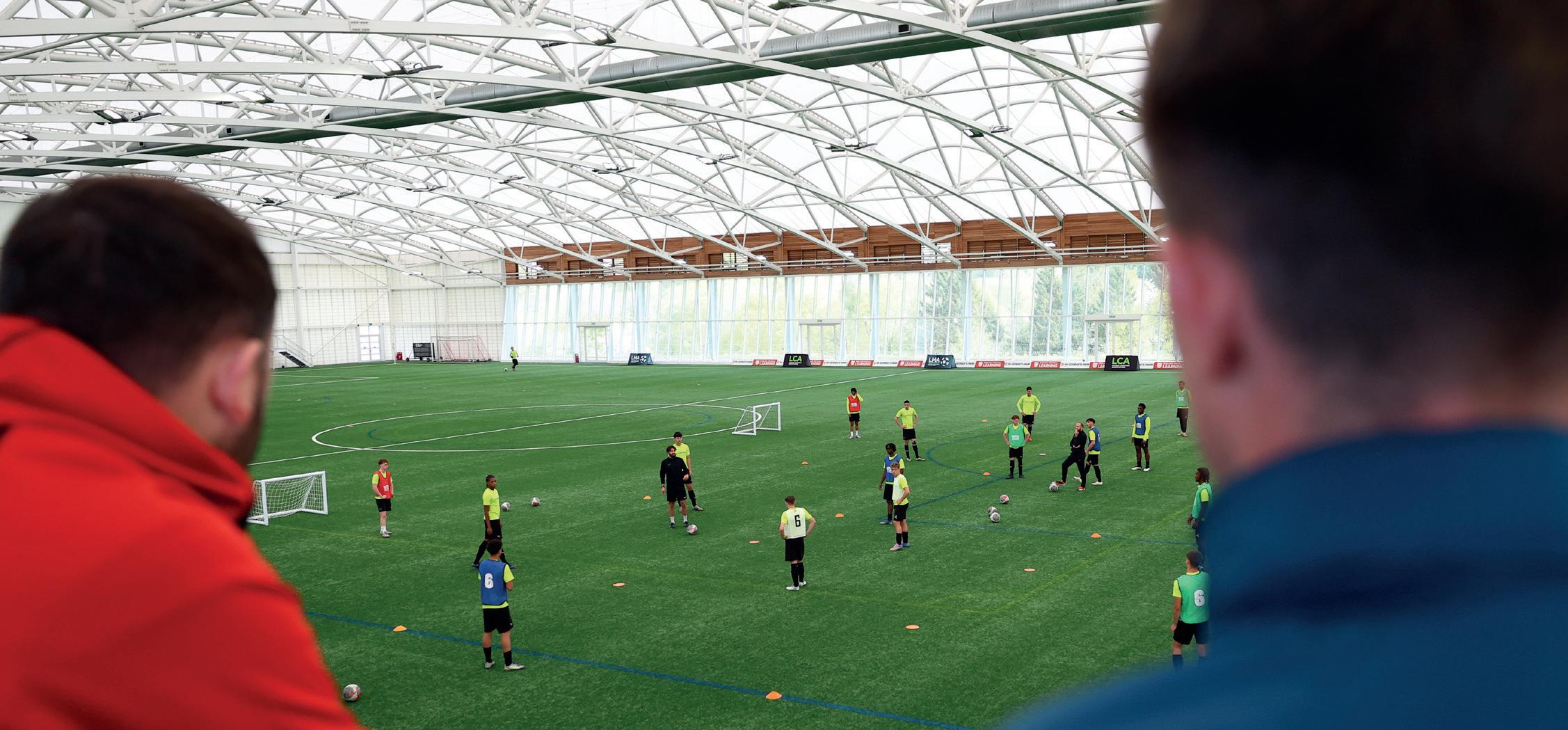
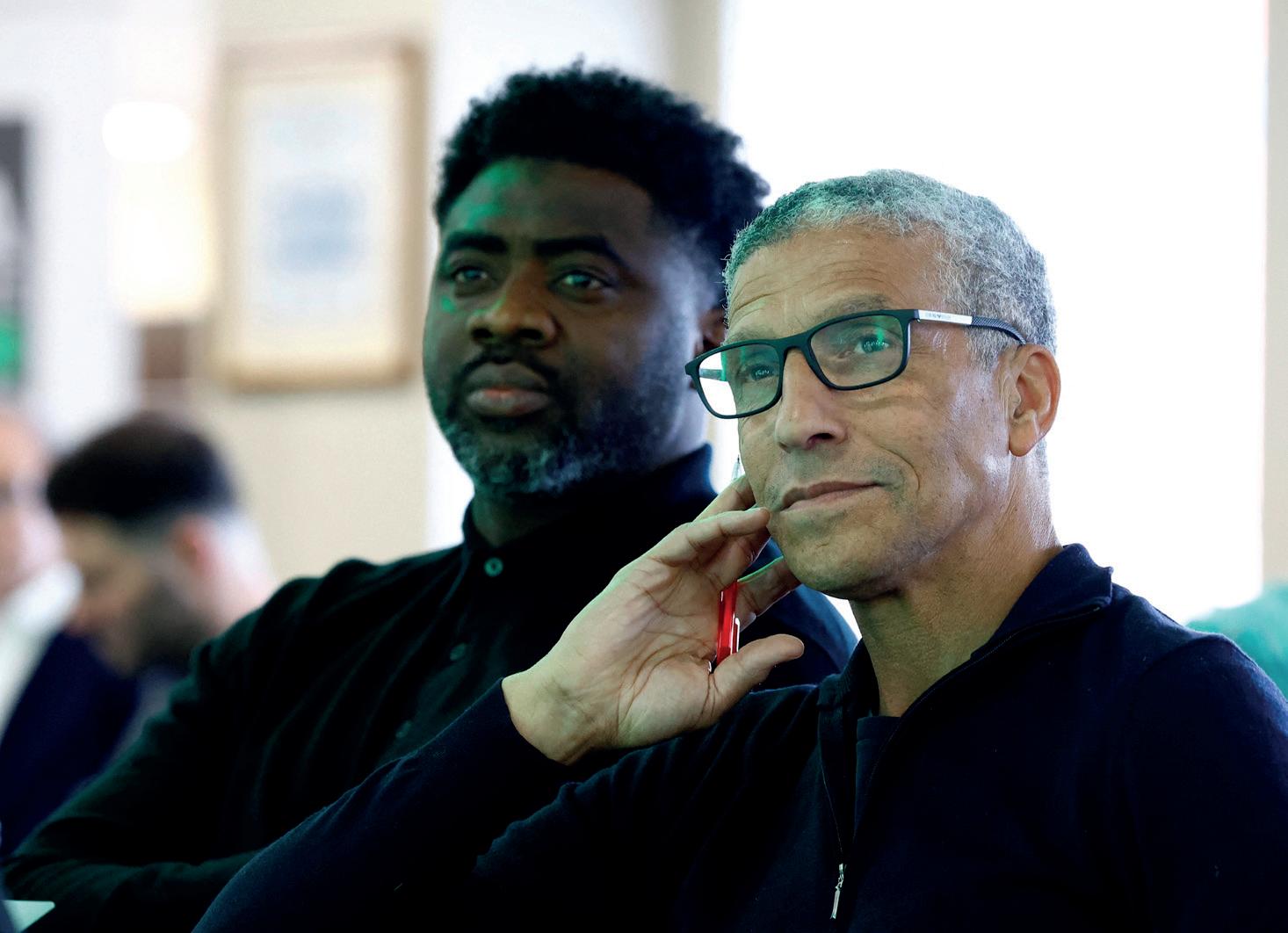
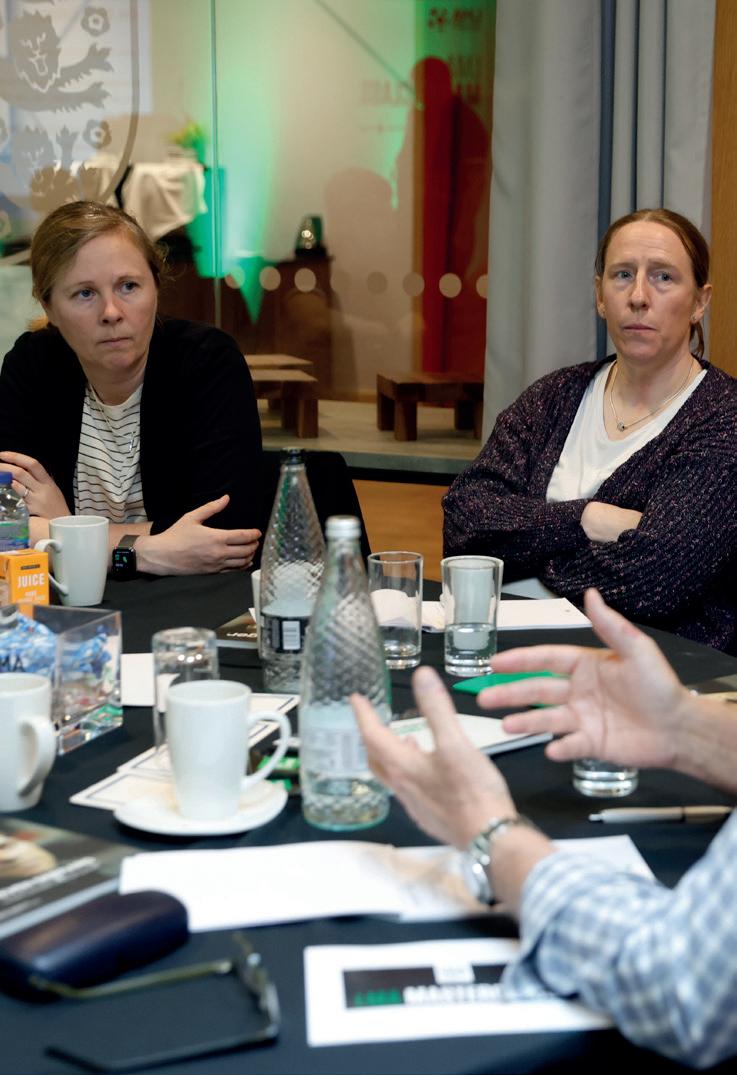
Choosing to build a career in elite level football management and coaching, is to do so in an industry that can be extremely competitive, volatile and often characterised by short termism. Whilst the profession can be isolating for football managers, the LMA believes it is a job not to be done on your own.
There is an overwhelming body of evidence in both sport and wider industry that leaders that are supported by trusted mentors, providing honest and empathetic guidance and support are more resilient in the face of challenges and more effective in delivering results.
It is in response to the above context that the LMA continues to invest in and grow its mentoring provision, including the recruitment and development of a talented pool of LMA Mentors. The LMA Mentoring programme plays a fundamental role in the day-to-day, vocationally relevant support we provide to our members who are active in the game.
The LMA Mentor Short Course is a 12-week training programme for members who hold a desire to become a mentor, and acquire the foundational skills to support leaders in football. This latest short course represents the LMA’s commitment to significantly increasing its pool of trained mentors to be deployed in the game and continuing to grow our member service provision.
Richard Bevan OBE LMA Chief Executive
LMA Mentor is a 12-week, 8-module short course, designed to develop the key skills, knowledge and professional practice that underpin effective mentoring.
The programme is intended to be:
To the real-life challenges and pressures of managing and coaching in professional football.
Delivered face-to-face and online with the ability to catch up in your own time.
LMA LEARNING PRINCIPLES.
Using tasks and scenarios for participants to tackle between sessions.
CO-CREATED
Blending theory, expertise and research with unique LMA member insights and experiences.
Encouraging participants to adopt new ways of thinking and behaving.
Open to subscribed LMA members who are looking to develop their mentoring skills
Starting Monday 22nd September 2025
12 weeks (7 fortnightly sessions)
In Person: 10am – 4pm Online: 12pm - 1:30pm
Modules 1, 2 and 8: Face-to-face at St. George’s Park Modules 3-7: Online
• Accredited by the English FA for 12 hours of CPD
• Accredited by the LMA Institute of Leadership and High Performance
• Participants with 100% engagement will receive an LMA Institute Certificate of Attendance
• Participants who undergo the LMA Mentor Assessment may be given the opportunity to work as an LMA Mentor in the future
Funded by the LMA
I’M VERY GRATEFUL TO THE LMA FOR PROVIDING ME WITH A MENTOR. I HAVE WORKED WITH A LOT OF DIFFERENT PEOPLE AND COACHES, AND I HAVE TO SAY THAT MY LMA MENTOR IS THE BEST I HAVE WORKED WITH. HE HAS A NATURAL EMPATHY AND UNDERSTANDING AND HIS SUPPORT HAS BEEN EXTREMELY VALUABLE TO ME.
Gary Rowett LMA Member

LMA Mentor will equip participants with:
KNOWLEDGE:
A strong understanding of important mentoring concepts and theories.
SELF-AWARENESS:
An enhanced awareness of your own mentoring style and approach including a framework of key skills.
SKILLS:
A range of practical, useable techniques and skills to improve the quality of professional relationships, develop trust and rapport and the ability to plan and review learning conversations.
INFLUENCE:
The capacity to be an influential advocate to challenge and support individuals with the intention to develop learning cultures for both the individual and the wider performance team.
LMA Mentor is grounded in the LMA’s Personal Development Model that provides a simple, holistic overview to the four pillars of personal development that are relevant to coaches and managers in professional football.
Effective mentoring will enable managers and coaches, through meaningful conversations, to become more self-aware of their own strengths and the full range of personal development opportunities.
The model is underpinned by a blend of academic research and real-life LMA Member experiences, and is aligned with the game’s collective Coach Excellence Framework.
YOU focuses on your personal and professional development, encompassing self-awareness and wellbeing. It emphasises the importance of building a strong foundation to sustain high performance and achieve your ambitions.
THE INDUSTRY explores the wider football landscape and its impact on your role as a football manager. By understanding these external factors, you can make informed decisions, adapt to changes and manage effectively in the dynamic environment of football.
YOUR TEAM concentrates on your role and responsibilities as a leader, emphasising the importance of building, managing and inspiring a team for success. By understanding the dynamics of effective leadership and team dynamics, you can guide your team to consistently perform at their best and achieve its goals.
THE GAME focuses on your technical knowledge of football and sporting performance and the framework that shapes this. This pillar equips you with the tools to enhance performance and drive success on the pitch.
LMA Mentor will cover the following 8 modules:
MODULE 1: MENTORING IN A FOOTBALL CONTEXT.
Date: 22nd September Face-to-face (SGP)
MODULE 2: THE ROLE OF A MENTOR.
Date: 22nd September Face-to-face (SGP)
MODULE 3: THE RESPONSIBILITIES OF A MENTOR.
Date: 6th October Online
MODULE 4: DEVELOPING EFFECTIVE RELATIONSHIPS.
Date: 20th October Online
MODULE 5: THE REALITIES OF BEING A MENTOR.
Date: 3rd November Online
MODULE 6:
THE RESULTS OF EFFECTIVE MENTORING.
Date: 17th November Online
MODULE 7:
REVIEWING PERFORMANCE.
Date: 1st December Online
MODULE 8:
SHARING OUR PRACTICE AND ACTION PLANNING.
Modules 1, 2 and 8 – face-to-face sessions
Modules 3 – 7 – online
12-weeks – fortnightly modules
Tasks and workbooks in-between sessions
Date: 15th December
Face-to-face (SGP)
Watch back on the LMA Online Platform
Accredited hours towards UEFA Licence validation
The LMA Mentor Short Course is accredited for 12 hours of CPD by the English FA.
LMA Mentor requires participants to complete two assessments in order to achieve the full accreditation.
At the beginning of the course, you will be asked to select an individual to act as your mentee and case study.
The first part of the assessment comprises a professional conversation with your tutor about your experiences with your chosen case study. The conversation allows you to describe some of the detail of how you have worked with your case study throughout the course and discuss some of your reflections. This part of the assessment will include a short presentation followed by questions around emerging themes.
Part two of the assessment allows you to share your practice and key learnings with your peers in a focus group. This conversation will take place face-to-face during module 8 and will be facilitated by the course tutors.
All participants will be expected to share their key learnings from their own practice, discuss their strengths and areas for development and finish with questions from the group.

Date: 22nd September
INTRODUCTION:
This first module will outline and explain the participant journey through the LMA Mentor Short Course. It will allow participants to investigate their reasons for wanting to be a mentor and explore the various influences on their own football/professional career.
The module will consider the informal and formal nature of the mentoring process and discuss the potential benefits for both mentor and mentee.
Participants will be invited to self-assess their current understanding and knowledge of mentoring skills in a football context and the module will emphasise the need to build trusting relationships to allow self-reflection, ownership and continuous professional and personal learning.
Subjects Covered:
• The concepts of Coaching and Mentoring
• The need for formal and informal approaches
• Understanding the need for a learning relationship
• Principles of effective practice
• The LMA Mentor Skills framework
• How a Case Study can develop your mentoring skills
Learning Outcomes:
• The LMA approach to mentoring
• How to identify key skills and characteristics of effective mentors
• How the mentoring process operates
• Why the mentoring process works
• Which skills and qualities are important for you to develop
What You Will Work On:
• Identify personal influences on your football/professional development
• Complete an initial LMA Mentor Skills self-assessment
• Identify a Case Study to help develop your practice
INTRODUCTION:
Date: 22nd September
In this module, participants will explore the different roles and functions that a mentor can play with different mentees. Having identified the core skills of active listening and effective questioning, participants will practice these skills with their peers. This module also considers how to operate in a professional and confidential manner when acting in the role of a mentor.
Participants will discuss how to agree the agenda for mentoring meetings and commit to follow up actions. Consideration will also be given to how mentors should contract with their mentee and how best to ‘plan, do and review’.
Mentors are challenged to define and communicate the role of a mentor in a football settinghow would you explain the role to your football colleagues?
Subjects Covered:
• The different roles of a mentor
• Why you should contract with your mentee
• Effective communication
• Communicate and articulate the role of mentor
Learning Outcomes:
• How to contract with a mentee
• How to plan and conduct professional conversations
• The importance of the first meeting
• How to get better at having mentoring conversations
What You Will Work On:
• Analyse a mentoring conversation
• Conduct and review a conversation with your peers
• Construct your own mentor contract
Date: 6th October
INTRODUCTION:
This module considers some of the key responsibilities of a mentor, including maintaining confidentiality and meeting the needs of each individual mentee.
Participants will consider how to exhibit flexibility in their mentoring approach, how to remain positive and solution focussed and what ethical considerations may occur in football related settings.
The module will also explore respecting professional and personal boundaries, when and how to refer to third-party specialists, as well as how to use notetaking, sharing information with the mentee and where a mentor can go to for support.
Subjects Covered:
• Working within your professional boundaries
• Remaining solution focused with your mentee
• Developing your own support network
• Keeping appropriate records and notetaking
Learning Outcomes:
• How to confirm the key issues for your mentee
• What actions would your mentee like to consider?
• How to help your mentee make a decision
• When to refer to a specialist
What You Will Work On:
• Identify personal areas of competence and boundaries as a mentor
• Build your own network of third-party specialists
• Review your contract with the Case Study
Date: 20th October
INTRODUCTION:
Module four is all about building relationships as a mentor. Participants will explore how to create trust in a mentoring environment and what behaviours will help to develop relationships.
The module will discuss how to maintain commitment from the mentee and will further develop the key skills of active listening and effective questioning.
You will also learn about feedback in a mentoring context.
Subjects Covered:
• Stages of relationships
• The GROW model
• Generating better questions
• Confirming tasks and actions
Learning Outcomes:
• A range of mentoring models and approaches
• How to collect and discuss feedback with the mentee
• When to be flexible in your approach
• How to stay action focused
• Review your own communication with your Case Study
• Apply the GROW model concepts to your mentoring
• Self-assess against the LMA Mentor Skills Framework
Date: 3rd November
INTRODUCTION:
Whilst theory can underpin and help with the mentoring process, the actual realities of being a mentor demand that a flexible and individual approach is taken with each mentee. This module considers the vocational realities that mentors face in the football industry. There are many difficulties that can arise across the different stages of mentoring and this module will cover how mentors can anticipate some of these challenges and adapt their approach accordingly. It is important to always consider and prioritise the care of the mentee and balance the focus on professional and personal issues which effect their behaviour and performance.
Subjects Covered:
• Realities for the mentor and mentee
• Exhibiting professional care
• Knowing when to end a mentoring relationship
Learning Outcomes:
• Understanding the key issues for the mentee
• How to remain calm during the mentoring process
• Being creative with the mentee and finding solutions
What You Will Work On:
• Anticipating football issues in a mentoring context
• Solutions to solve these issues
• Share your current mentoring issues with your peer group
Date: 17th November
INTRODUCTION:
This module is about finding ways to know when effective mentoring has taken place, knowing if the mentee is committed to action and what the observable changes are to indicate that the mentoring process is having an effect.
Participants will investigate the linked concepts of generating evidence of the mentee’s behaviours and how to accurately measure success.
Subjects Covered:
• Identifying successful outcomes
• Actions of a committed mentee
• Collecting and evaluating evidence
Learning Outcomes:
• How to evaluate the commitment of the mentee
• The difference between objective and subjective evidence
• Why the provision of feedback is crucial
• How to monitor and evaluate mentee progress
What You Will Work On:
• Generate a checklist of potential successful outcomes
• Check your own evidence with your Case Study
• Evaluate and share successful mentee experiences
Date: 1st December
INTRODUCTION:
Having investigated success from a mentee perspective, this module switches to focus on the performance of the mentor. It covers what success looks like for a mentor, how to evaluate your own performance and how the mentee can evaluate your performance.
It is important to establish professional practice that generates feedback for both the short and long term. Participants will learn how to review conversations, reflect on planning and preparation, and learn about the complexities of mentee behaviours.
Subjects Covered:
• Reviewing your performance as a mentor
• Collecting evidence of successful mentor behaviour
• Planning and reflecting on conversations
• Evaluation of mentor behaviour
• Mentor learning
Learning Outcomes:
• How to record and collect evidence of your own mentor behaviour
• The importance of planning and reflection
• How to share your experiences with other mentors
• How to assess your own behaviours
• Using your Case Study Logbook
What You Will Work On:
• Analyse your own evidence and share your experiences
• Revisit and self-assess the LMA Mentor Skills Framework
• Share some of your current mentoring issues with your peer group
Date: 15th December
INTRODUCTION:
This module reviews the mentor training journey and allows participants to reflect on and share their own experience. Mentoring is a two-way reciprocal relationship where people come together and learn from each other. It can be tremendously satisfying for all parties involved.
Having identified personal strengths and areas for development, mentors are invited to look ahead and decide on their own Action Plan moving forward. Mentors will work through and create their own Personal Development Plan for both the short and medium term. Mentors will explore the various options for how they would like to use the skills that they have developed through the course. Mentors will also consider different options for future learning and development including the different routes into professional accreditation.
Subjects Covered:
• Personal review and reflection
• Generation of a Personal Development Plan
• Professional accreditation systems
• How to use my skills moving forward
Learning Outcomes:
• Personal strengths and areas for development
• What can I do to be better?
What You Will Work On:
• Personally reflect on the training journey
• Construct a Personal Development Plan
• Consider and share how you would like to use your skills

MY FIRST FEW WEEKS AFTER JOINING CHELSEA, THE LMA WERE SUCH A FUNDAMENTAL SUPPORT TO ME BOTH PROFESSIONALLY AND PERSONALLY.
To ensure equitable access to the programme, the LMA Mentor Short Course is open to all registered LMA Members by applying using the link below:
The closing date for applications is Friday 29th August 2025.
The LMA Mentor Short Course is designed to accommodate a maximum cohort of 20 people.
The LMA wants to ensure that those who are committed to working as a mentor in the future are given priority access to the course.
You may be invited to an interview before your application is accepted.

Andy is one of the UK’s most experienced coach educators and has worked in football and education for over 25 years.
Andy brings a unique combination that blends high level practical experience as a coach (UEFA Pro Licence holder) and coach educator with a strong academic foundation. Andy has enjoyed a career with many different organisations, including Sheffield United as a Sports Psychologist, The Football Association as Head of Player Development and Research and The New Saints (TNS) as a Manager in the Champions League.
Dr Andy Cale has been a key contributor to the LMA Mentoring Programme since 2018.


Member
League Managers Association, St. George’s Park, Newborough Road, Needwood, Burton upon Trent DE13 9PD 01283 576350 | leaguemanagers.com | LMA@leaguemanagers.com